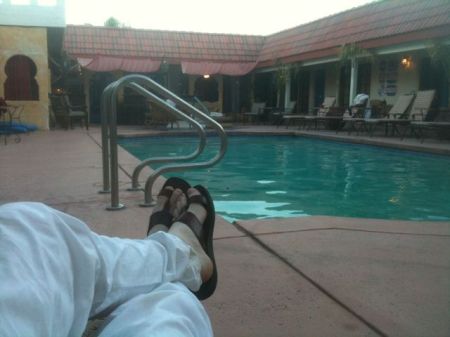Bob Lefsetz is a smart and entertaining music business theorist and writer. Yesterday he was comparing the level of innovation and risk taking in the tech world versus the music business. As an object lesson Google and Groupon. Here is his piece.
http://lefsetz.com/wordpress/index.php/archives/2010/11/30/googlegroupon/
Odd thing. It turns out that Cracker and Camper Van Beethoven play a small role in this story. Here is my letter to Bob that has been making the rounds of the Blogosphere.
Read your article Bob. Nice piece. Largely you are right about the risk averse backwards thinking folks who run the music business now. But strangely music types played a small but important role in the history of groupon. In particular myself and my two bands.
In 2008 I was appointed to the board of advisors of a small web startup called www.thepoint.com. The site the brainchild of Andrew Mason was a ” tipping point” mechanism, a social networking site that allowed people “commit” to take group action. In particular the hope was they would take group action for social change. The investors quietly noted there was not a clear way to monetize Andrew’s experiment. However they hoped that by watching the way users used the tipping point mechanism, a viable way to monetize this website would present itself.
I was asked to start a campaign on www.thepoint.com.”To get a feel for it”. Not being very socially conscious I decided that I wanted to use The Point for my own narrow self interests.
Cracker and Camper Van Beethoven have a festival, The Campout. It’s rather remote and since we produce the small festival ourselves we take considerable financial risk. While the previous years had been marginally successful we were worried about the rapidly deteriorating economy (I believe Bear Stearns had just gone bankrupt). So I started a campaign to get a “break even” amount of CVB and Cracker fans to commit to attend the festival. In this way our fan’s promises to attend would become a sort of promissory note. no pun intended. While you couldn’t exactly peg it’s value, these collective promises to attend at some point seemed to be worth enough to go ahead and book the flights, PA, lights, and port-o-potties.
Other successful “campaigns” on The Point also involved similar commitments for group purchasing. It wasn’t long before The Point became Groupon.
Okay so that’s a story about Groupon, that has smart music people and smart techies helping each other and they all live happily ever after.
Now here is another story about Groupon that illustrates YOUR point that the modern music business is run by risk averse technophobe idiots.
The financial backers of Groupon as well as CEO Andrew Mason are music fans. (Andrew apparently played in bands and had dreams of becoming a rockstar.) Groupon’s founders wanted to demonstrate the power of the now wildly successful Groupon by putting on a series of concerts. There was a significant element of altruism in their efforts, but it had not gone unnoticed that most concerts have a lot of empty seats. And Groupon works best when the “incremental” cost of adding clients/patrons is very low. Adding concertgoers to a half full arena is a perfect example of low incremental costs. So concerts were seen as a natural fit for Groupon. I was enlisted to try to get a Groupon only concert going. Twice! Both times artists agents managers promoters all failed to understand the concept. Even my wife, Velena Vego who is a brilliant concert promoter didn’t really get it.
(editiors note this: is not quite true. concert promoter and groupon user Lucy Freas seemed to understand the concept)
(Due Diligence requires me to point out that there may be a strange mathematical logic to having consistently half full arenas. The theory is that in the long term the artists will bear the brunt of the inefficiencies of half full arenas while LiveNation reaps outsized rewards on the sold out shows. It’s a complex argument and it involves what options and derivative traders call Volatility Trading Theory, but it at least partially explains why LiveNation has been supposed to go out of business for the last 8 years yet has not. But alas I divagate).
In general, this is the story of the last 25 years of the music business. Everybody now thinks they are geniuses if they have one artist that is a hit. They think you can take something and make it a hit. They do not understand the roll of luck in this business. Instead they expect certainty and take no risks.
They no longer understand the need to make MANY risky bets. They have forgotten that most bands and artists will be commercial failures. They no longer have the stomach for failure therefore the modern record company spends 63.4% percent of it’s time trying to figure out who to blame for the failure, instead of moving on, getting back to work and searching out the interesting artists and new ideas.
After Virgin America signed CVB president Jeff Ayeroff told me ” Just keep doing what you do. one day you guys will write a hit, maybe even by accident”. exactly.

